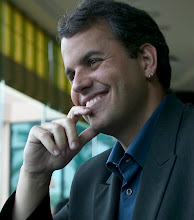Malcolm Gladwell's new book "Outliers" demolishes universal preconceptions about success and opportunity. It argues that within broad ranges of intelligence, skills, and talents, incredibly success -- that is, becoming an outlier -- is driven by opportunity rather than the unique superiority of those skills. For example, being born in the first three months of the year is a primary indicator of whether you'll be a top hockey player in Canada. This is because age cutoffs in the earliest youth leagues result in January kids being bigger and stronger, leading to more coaching and practice. Rather than vanishing, this advantage continues all the way to the pros. Similarly, being born in the early part of the year translates into a measurable academic advantage in elementary school. Again, this advantage remains all the way through graduate school. "Outliers" contains too many stories to effectively synopsize, but suffice it to say that Gladwell describes cultural, geographic, and demographic effects that limit opportunities and that these opportunities gate success. Not that everyone is equally skilled or equally likely to succeed, but that above certain thresholds, opportunity, training, and practice are more indicative than additional intelligence. Gladwell drives the point home in the area of sports, where Canada literally ignores half of its population in building its national hockey team, but despite several examples of how transformative training can be -- Korean Airlines' dramatic reduction in accidents or the KIPP school's success teaching math and science -- stops short of stating the obvious.
Our understanding of innovation, collaboration, change, and success are sufficient for us to recognize that we our squandering the talents of many people. We prevent the majority of potential innovators in America from even trying. Only a very few ever are able to approach the 10,000 hours needed to become truly expert. For entrepreneurs, scientists, and researchers, that's years of experience and failure. And years of experience or failure you only have a chance to get if opportunities appear much earlier in life. Opportunities like learning to doggedly attack a problem until it is solved. Or properly manage power relationships in order to ask for what you want. Or to fail and try again.
We must do more.
Nota Bene: Some reviewers and pundits are attacking "Outliers" by arguing experimental science has a monopoly on The Truth. This is just silly. Every great advance in human understanding has emerged from the union of observational and experimental science. Both qualitative and quantitative research create knowledge -- my personal favorite examples are the meta-studies of the impact of funding source on experimental results. New ideas and interpretations spring both from unusual experiments and from unexpected observations. So, by all means, please challenge specific studies or stories cited in Outliers. Or craft better hypotheses and studies. But claiming the ideas are invalid simply because he's a journalist or the work is built on anecdotes demonstrates incredibly lazy thinking.
Wednesday, November 26, 2008
outliers
Labels:
reviews,
technology
Subscribe to:
Post Comments (Atom)


2 comments:
Observation is the one of the largest sources of new concepts we have, but leaving it at that is standing on shaky ground indeed. Once you have a concept, it's meaningless unless it is used, and from the results of its use you get results. From the results you can determine the relative worth of the concept. The quality of the results - and therefore the conclusions drawn from them - depend greatly on the methods behind the execution of the concept and in the collection of the results.
It's in the realm of experimentation that those factors are most controlled and the best evaluation of worth can be made. It doesn't sound like he has any controls affecting his conclusions. It's pure observation - A first step towards something useful, at best.
Unfortunately, some concepts don't lend themselves well to controlled execution, such as this one perhaps. (I know nothing about the 'outliers' idea beyond what your blog contains, though.) It also has that overtone of 'cum hoc ergo propter hoc' which raises another warning flag. A third warning flag is that you only see this effect where it is strongest - Where it is weak, or non-existent, it is ignored instead of being considered a counter-result. A fourth flag is that it feels 'right' and therefore is a hard concept to let go of once one takes it to heart. Such ideas can last even in the face of overwhelming evidence to the contrary.
It sounds like this guy's idea bundles chance, self-selection, and cherry-picking into one concept of "what's going wrong with the world". Does he also suggest a clear-cut way to use his idea to "make things better"? I'm sure he has something, but how practical is it? Is it something that can be done, or just something that he wants people to be aware of? I'm all for being aware of such connections, but being ruled by statistical peridolia is a sure-fire recipe for going round in circles.
Anyway... Just found your blog. :) I'm sad I didn't get to meet you a few years back when I came out to LL for a job interview.
~ Chris Innanen
~ SL: Tiger Crossing
~ aka: Nonsanity
Hey, Tiger, nice to remeet you here.
To be clear, I am not arguing that observational science can stand on its own, either.
The book's a quick read, so probably faster to read and form your own opinions :-).
Post a Comment